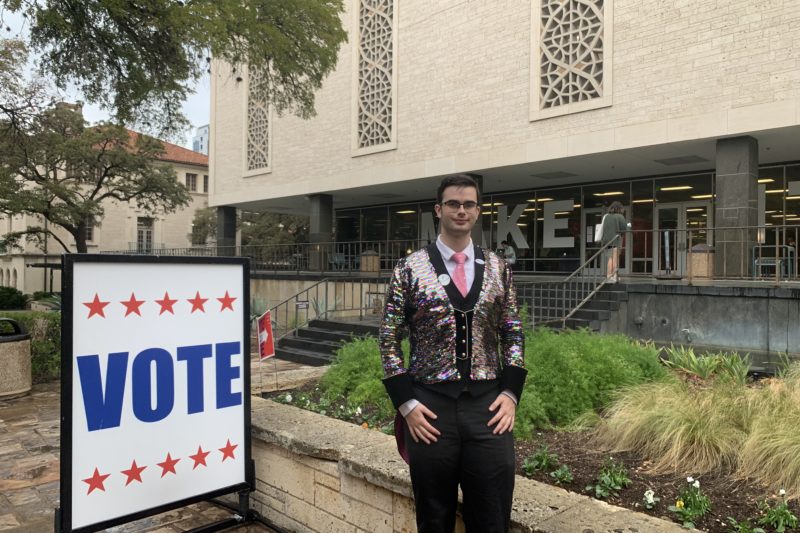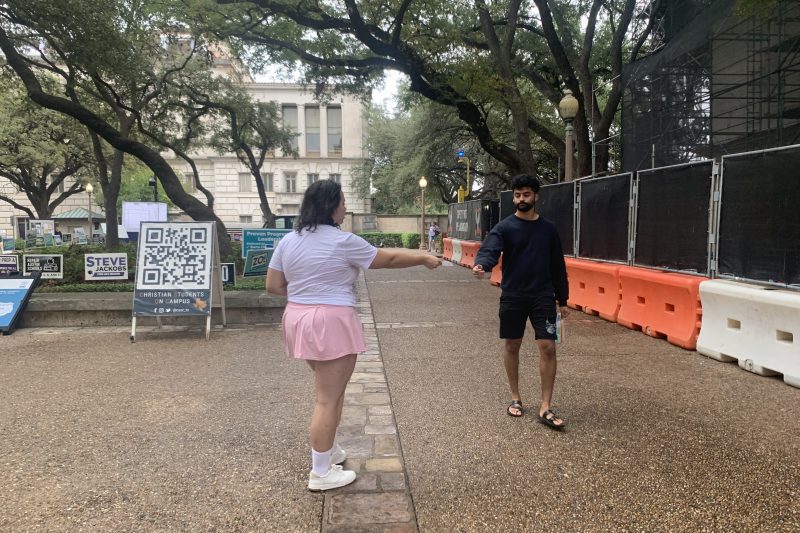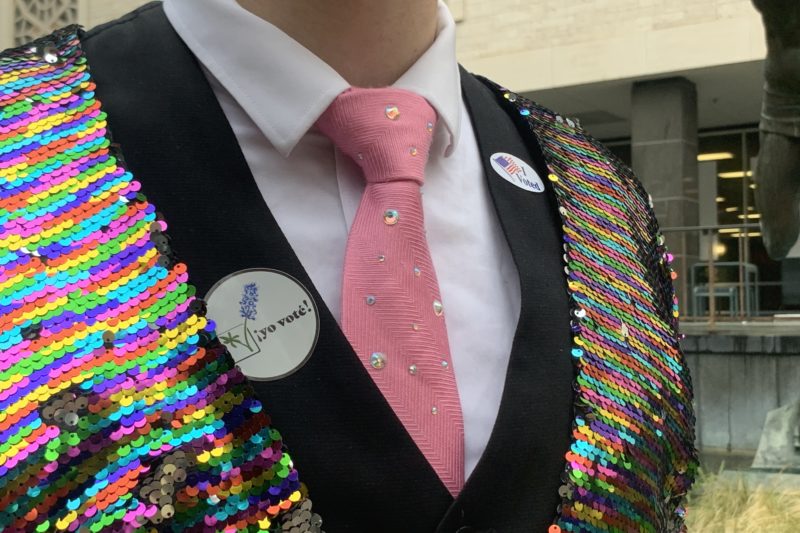UT Students Turn Out for Early Voting
By Taryn Jones
Reporting Texas TV
AUSTIN, Texas – Early voting began Monday, Oct. 24, with University of Texas students braving rainy weather to cast their ballots on campus.
For the next two weeks, the Flawn Academic Center (FAC) and LBJ School of Public Affairs are open as polling locations on campus. Unlike previous years, the Perry-Castañeda Library is no longer a voting location for midterm elections.
Brandon Bradley and other members of the student organization University Democrats camped out for 12 hours outside the FAC to be first in line to vote.
He hopes to convince over 250 students per day to utilize early voting by working as a poll greeter, and will be highly visible in a multicolored, sequined suit.
“We’re definitely trying to get people to go on and take advantage of the fact that, unlike on election day, there is literally no line,” Bradley said.

Brandon Bradley cast his ballot at the Flawn Academic Center. (Photo: Taryn Jones, Reporting Texas TV)
The most contentious race this year is for governor between Democratic candidate Beto O’Rourke and Republican incumbent Greg Abbott. A Spectrum News and Siena College poll found Abbott is currently leading O’Rourke by 9%.
“Gen Z and millennials together are now the entire voting block in the electorate and so if we turned out we would decide elections, but Gen Z voter turnout is the lowest of any group,” Bradley said.
While experts say UT students may not have a large impact on state-wide elections such as governor, Austin Young Democrats President Eleanor Walter said the local student vote can play a major role in determining the outcome of more local elections.
“There are bond propositions on the ballot for [Austin Independent School District] which will literally shape the future of education in Austin,” Walter said. “We need people to get out and to vote for it.”
Other local items on the ballot this year include Proposition A, which would allocate $350 million in bonds to building and renovating housing for lower– and moderate-income Austin residents. Walter said that Prop A would help students entering the workforce to continue living in Austin after graduation.
“It’s super important to vote up and down the ballot,” Walter said. “Those top-ticket races like governor are super super important, but we also have hyper-local issues that will shape the future of Austin.”

Poll greeter Eleanor Walter distributes informational brochures near the Flawn Academic Center voting location at the University of Texas in Austin, Texas. (Photo: Taryn Jones, Reporting Texas TV)
UT Government Professor Sean Theriault said UT students are more aware of political ongoings due to the campus’s close proximity to the state capitol.
“The shadow of the capitol extends all the way to the 40 Acres,” UT Government Professor Sean Theriault said. “Even if they don’t feel it when they walk on the 40 Acres, they can’t help but feel it once they’re on the 40 Acres.”
Texas law requires voters to present some form of identification at polling locations. A few of these documents include a driver’s license, passport, pay check or current utility bill. A university-issued ID is not considered to be appropriate identification.
“Students, especially at the University of Texas, care about their democracy,” Theriault said. “They care about making decisions that affect their own body. They care about the environment. They care about making sure the government functions and solves problems.”
The university announced it will allow staff to take time off during scheduled hours to vote during the election period. Both campus locations are open from 7 a.m. to 7 p.m. Mondays through Saturdays and from 12 p.m. to 6 p.m. on Sundays. Election Day is Nov. 8.

UT student Ashwara Pillai designed the new “I Voted” sticker.(Photo: Taryn Jones, Reporting Texas TV)